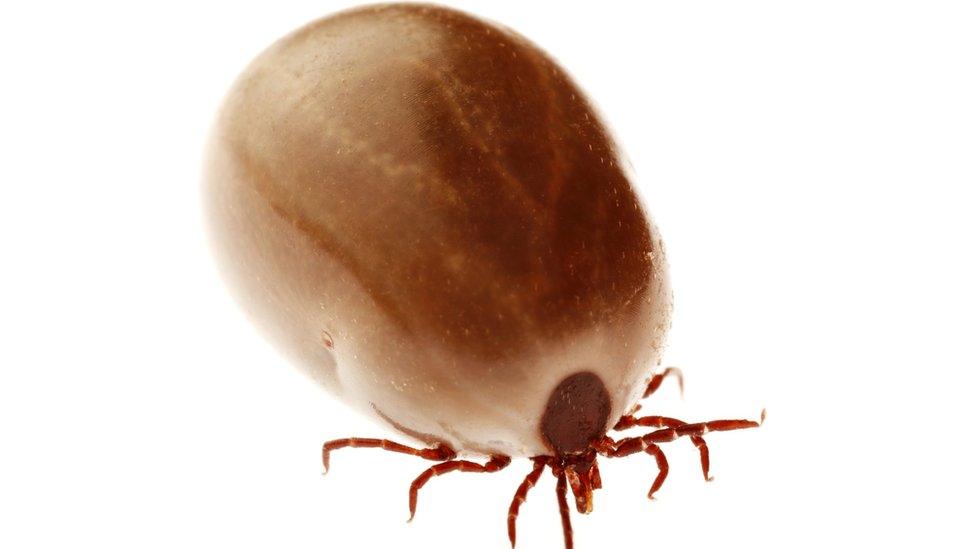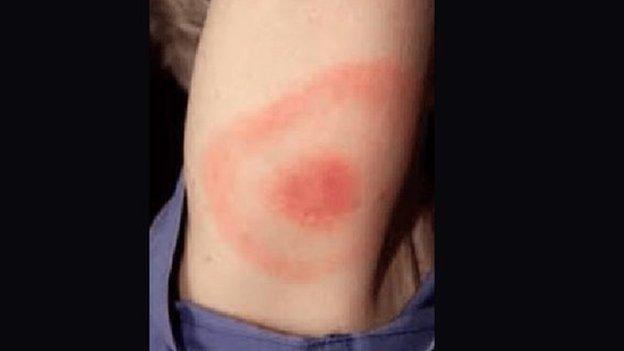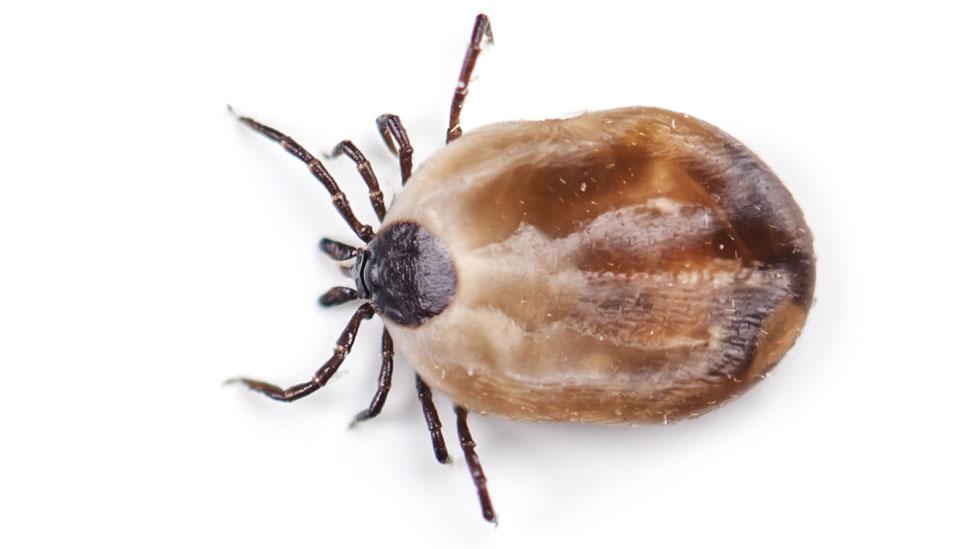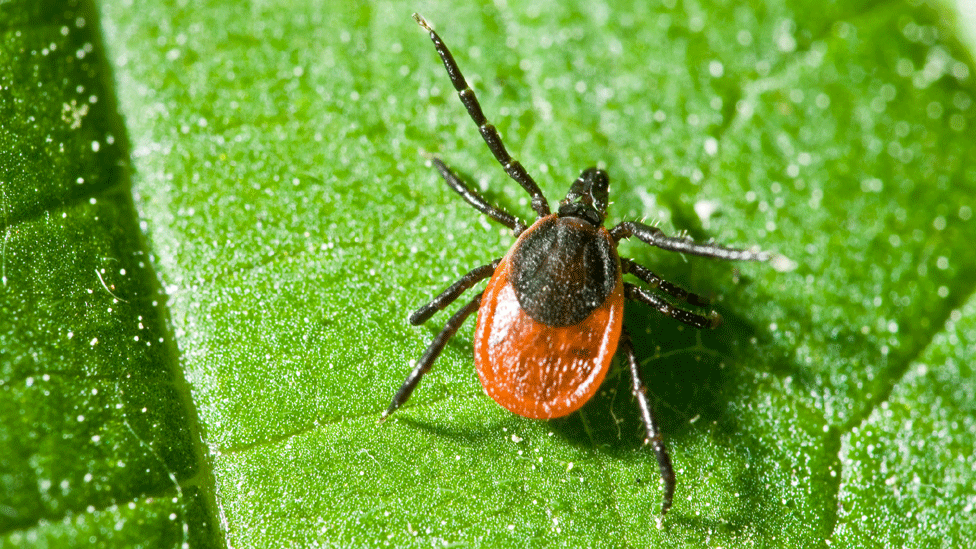Tick and Lyme disease awareness events for South Uist
- Published

Advice on what to do to avoid ticks is to be given at one of the two planned events
Events raising awareness about the risk of ticks and Lyme disease are to be held in part of the Western Isles where problems with both were indentified.
The incidence of Lyme disease on Uist was found to be far greater than that on neighbouring islands, according to figures gathered by BBC Gaelic News.
The infection can be transmitted to humans through a bite from a tick.
NHS Western Isles is to hold the events later this month at Stoneybridge Hall in South Uist.
On 30 March, the health board said local experts would give "a snapshot of the current situation" with regards to ticks and what actions can be taken to avoid bites and what to do if bitten by a tick.
The second event on 31 March will explore incidence of Lyme disease and how this affects land management and use of land.
NHS Western Isles said evidence of the presence of ticks would be presented at this event. People who want to attend have been asked to register their interest with the health board.

Lyme disease and ticks

A tick bite
Lyme disease is a bacterial infection that is spread to humans by infected ticks.
Flu-like symptoms and fatigue are often the first noticeable signs of infection. An untreated bite often shows as a distinctive red circle-like mark on a person's skin.
Diagnosed cases of Lyme disease can be treated with antibiotics, but, if left untreated, neurological problems and joint pain can develop months or years later.
Ticks are small arthropods related to spiders, mites and scorpions and Britain has a number of different species.
People are most likely to come across sheep ticks, which feed on mammals such as deer and also birds, in open spaces with long grass or bracken.
Hillwalkers and climbers organisation, Mountaineering Scotland, regularly issues advice on how to avoid and deal with ticks.
It suggests people can protect themselves better by tucking trousers into socks or wearing gaiters, and also by making thorough checks of their bodies once back home. It recommends that these checks should be repeated over several days.
If a tick is found attached to a person's skin, it can be removed with a tick hook. If in doubt, seek advice from a doctor, Mountaineering Scotland says.

Last year, the investigation by BBC Alba suggested that over four years a total of 165 individuals on North Uist, South Uist and Benbecula were diagnosed with the disease.
In that same period, Lewis and Harris have recorded just one case and Barra three.
The figures for incidence of Lyme disease on the Western Isles were provided by medical practices across the islands.
NHS Western Isles and other groups have been investigating the reason for the higher numbers on Uist.
- Published25 November 2016

- Published12 May 2016

- Published21 July 2015
